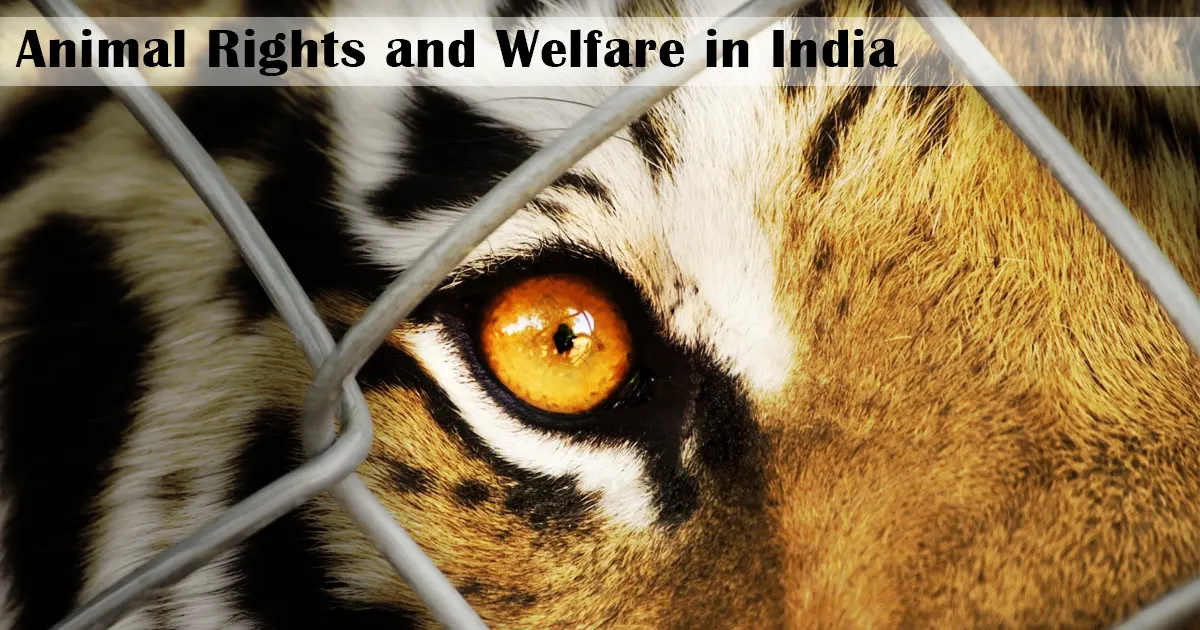
Background: Key issues in India’s pet industry are raising serious concerns regarding animal rights and welfare.
Animal Rights and Welfare:
- Animal Welfare Principles: Focuses on the “Five Freedoms” (Brambell’s framework), which include freedom from hunger, discomfort, pain, and distress, as well as the freedom for animals to express their natural behaviors.
- Animal Rights: Supports acknowledging animals’ intrinsic value, standing against their exploitation solely for human purposes.
Development of the Animal Rights Movement (ARM):
- Historical Beginnings: The ARM in India dates back to the formation of the Society for Prevention of Cruelty to Animals in 1861, which laid the groundwork for animal welfare advocacy.
- Religious Influence: Concepts of non-violence found in Hinduism, Jainism, and Buddhism have deeply influenced Indian views on animal welfare, leading to greater demand for humane treatment and stricter animal protections.
- Increasing Advocacy: Current campaigns are gaining momentum, signifying a societal shift towards empathy and accountability in treating animals.
Impact of Human Activity on Animal Welfare:
- Environmental Damage: Wildlife health suffers from habitat destruction, pollution, and climate change.
- Suffering in Captivity: Animals held in captivity for consumption, fashion, or research endure stressful and painful conditions.
- Issues in the Pet Trade: The pet industry raises health and behavioral problems for animals and poses challenges for conservation efforts.
Technological Advances in Supporting Animal Rights:
- AI for Health Monitoring: AI technology helps in tracking animal health and detecting diseases early.
- Blockchain Transparency: Blockchain technology can enhance transparency in the ethical sourcing and welfare standards within the food industry.
Legal and Policy Framework for Animal Rights in India
- Prevention of Cruelty to Animals Act, 1960 (PCA Act): Aims to prevent unnecessary suffering of animals.
- Wildlife Protection Act, 1972: Regulates hunting and trade of wild species, helping conserve wildlife and protect their habitats.
- Assam Cattle Preservation Act, 2021: Specifically restricts cow slaughter in Assam, catering to local and cultural sensitivities around cattle.
- Animal Welfare Board of India (AWBI): Develops policies, manages welfare initiatives, and collaborates with government entities to educate the public and support prosecutions related to animal cruelty.
Key Animal Welfare Programs:
- Animal Birth Control (ABC) Program: Under the 2023 ABC Rules, the program mandates the sterilization and vaccination of stray dogs, assigning care duties to local authorities.
Judicial Standpoints on Animal Rights:
- Supreme Court in AWBI vs. Nagaraja (2014): Recognized animal rights as integral to fundamental rights, upheld stray dogs’ rights to life, and prohibited their relocation.
Challenges and Criticisms:
- Insufficient Penalties: The PCA Act imposes low fines (Rs 10-50 for first offenses), highlighting the need for reform to deter animal cruelty more effectively.
- Vague Definition of Cruelty: The 1960 PCA Act lacks a clear definition of cruelty and does not differentiate between degrees of offense, limiting effective punishment.
Systemic Issues and Legal Gaps:
- Regulatory Shortfalls: The pet breeding industry in India is largely unregulated, which allows illegal operations to thrive.
- Enforcement Challenges: Weak enforcement mechanisms in the PCA Act result in ineffective oversight.
- Poor Licensing Standards: Lack of stringent licensing contributes to unchecked breeding practices.
- Inspection Shortfalls: Absence of routine inspections allows illegal breeders to operate without legal repercussions.
Recommendations for Improvement:
- Strengthen Existing Legislation: Pass the Draft Prevention of Cruelty to Animals (Amendment) Bill, 2022, and increase penalties in the PCA Act to provide a stronger deterrent against cruelty.
- Uniform Welfare Policies: Create consistent animal welfare standards nationwide to protect animal rights more effectively.
- Educational Outreach: Raise awareness on ethical breeding, adoption, and humane treatment.
- Enhanced Enforcement: Regularly inspect breeding facilities and penalize unlicensed operations to ensure compliance.




